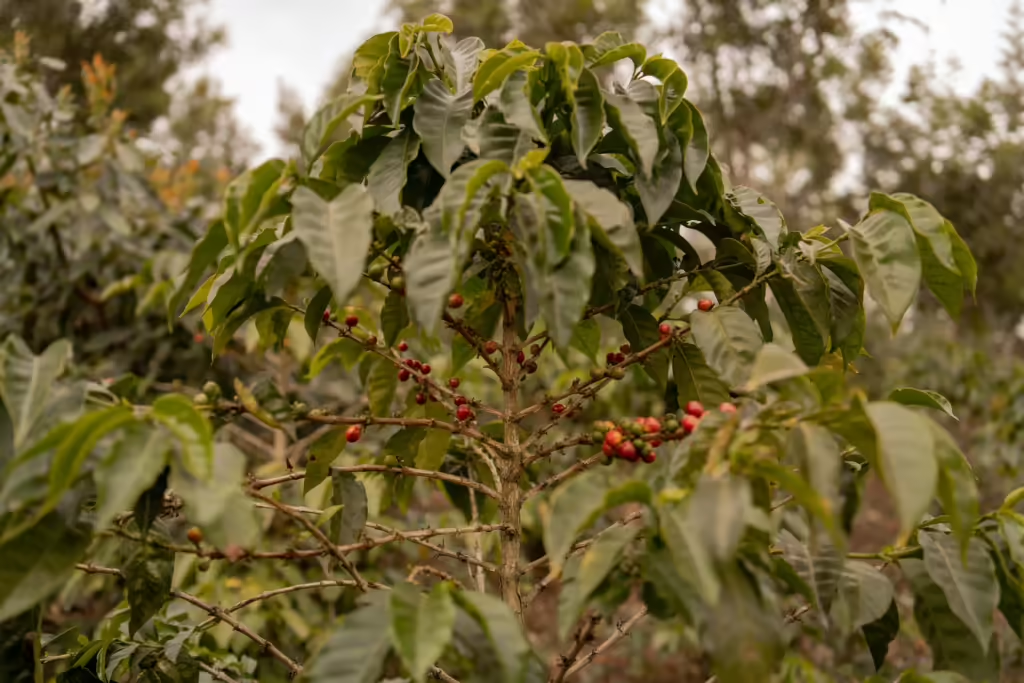
When you sip your morning coffee, have you ever wondered about the journey those beans took to reach your cup? The coffee industry supports millions of farmers and workers around the world, but not all coffee is grown and traded under fair conditions. That’s where Fair Trade coffee comes in. Fair Trade certification ensures that coffee farmers are paid fairly and treated with dignity, while also promoting sustainable farming practices. But what exactly is Fair Trade coffee, and why should it matter to you as a consumer? In this article, we’ll explain how Fair Trade works, why it’s important for farmers, and how choosing Fair Trade coffee can make a positive impact.
What is Fair Trade Coffee?
Fair Trade coffee is coffee that has been certified under the Fair Trade International standards, which ensure that the coffee was produced under fair labor conditions and sold at a fair price. The goal of Fair Trade is to create better trading conditions for farmers and workers in developing countries, empowering them to improve their livelihoods and communities.
Fair Trade certification guarantees that coffee farmers are paid a minimum price for their beans, protecting them from market fluctuations. In addition, farmers receive a Fair Trade premium, which they can invest in social, economic, or environmental projects that benefit their communities. This model promotes transparency, sustainability, and ethical practices throughout the coffee supply chain.
Why Fair Trade Matters for Farmers
The global coffee market is highly competitive, and many small-scale farmers face significant challenges, including fluctuating prices, unstable incomes, and poor working conditions. Fair Trade aims to address these issues by creating more equitable trading relationships between farmers and buyers. Here are a few reasons why Fair Trade coffee matters for farmers:
1. Fair Prices for Coffee Farmers
One of the core principles of Fair Trade is ensuring that farmers are paid a fair price for their coffee, regardless of market conditions. In many parts of the world, coffee prices can be volatile, often dropping below the cost of production. This puts immense financial pressure on farmers, who may struggle to cover basic needs such as food, education, and healthcare.
Fair Trade sets a minimum price that covers the cost of sustainable production. This price acts as a safety net for farmers, ensuring that they can maintain a stable income even when global coffee prices fluctuate. When market prices are higher, Fair Trade farmers receive the higher market rate, in addition to a Fair Trade premium.
2. The Fair Trade Premium
In addition to receiving a fair price for their coffee, Fair Trade farmers earn a Fair Trade premium—an additional sum of money that is reinvested into their communities. Farmers can choose how to use this premium, often directing it toward social and environmental projects that improve their livelihoods. Some common uses of the Fair Trade premium include:
- Building schools and funding education programs.
- Improving healthcare services and access to clean water.
- Investing in sustainable farming techniques, such as organic farming or reforestation.
- Creating infrastructure for processing and exporting coffee, which helps farmers retain more profit.
By investing in these initiatives, Fair Trade empowers farmers to create long-term improvements for their families and communities.
3. Safe Working Conditions
Fair Trade certification ensures that farmers and workers are protected by fair labor practices, including safe working conditions, reasonable working hours, and the right to unionize. Child labor and forced labor are strictly prohibited under Fair Trade standards.
This focus on labor rights ensures that coffee production is ethical and that farmers and workers are treated with dignity and respect. For many farmers, Fair Trade certification is a pathway to improved working conditions and a higher quality of life.
4. Environmental Sustainability
Fair Trade also promotes environmentally sustainable farming practices, which are critical for protecting the ecosystems where coffee is grown. Fair Trade farmers are encouraged to adopt practices that reduce environmental impact, such as:
- Minimizing the use of chemical pesticides and fertilizers.
- Promoting biodiversity and wildlife conservation.
- Improving soil health and water management.
- Using organic farming techniques.
By supporting sustainable agriculture, Fair Trade helps farmers protect their land for future generations while producing high-quality coffee.
Why Fair Trade Matters for You
As a consumer, the choices you make about the coffee you buy can have a big impact on the lives of farmers and the environment. Choosing Fair Trade coffee allows you to enjoy your daily cup of coffee knowing that it was produced in a way that promotes fairness, dignity, and sustainability. Here’s why Fair Trade coffee matters for you:
1. Supporting Ethical Practices
By purchasing Fair Trade coffee, you are supporting ethical practices throughout the coffee supply chain. You are helping to ensure that the farmers who grow your coffee are paid fairly and treated with respect. This is particularly important in an industry where many farmers face exploitation and poverty.
When you choose Fair Trade, you’re voting with your dollar for a coffee industry that prioritizes people over profits. You are helping to create a more equitable and just global coffee market.
2. Higher Quality Coffee
Fair Trade coffee is often associated with higher quality beans. Many Fair Trade farmers invest in sustainable and organic farming practices, which lead to healthier coffee plants and better-tasting coffee. Because Fair Trade emphasizes transparency and traceability, you can often find detailed information about the origins of your coffee, including the region where it was grown and the farmers who produced it.
This attention to detail often results in coffee that has more complex flavors and higher overall quality, making Fair Trade coffee a great choice for coffee lovers who appreciate a good cup of joe.
3. Protecting the Environment
If you care about the environment, Fair Trade coffee is a sustainable choice. Fair Trade farmers are encouraged to use environmentally friendly practices that help protect natural ecosystems and reduce the carbon footprint of coffee production. By supporting these farmers, you’re contributing to a healthier planet and reducing the environmental impact of your coffee consumption.
4. Transparency and Traceability
Fair Trade certification promotes transparency throughout the coffee supply chain, allowing you to know exactly where your coffee comes from and how it was produced. Many Fair Trade brands offer detailed information about the farming cooperatives and regions where the coffee is grown, so you can feel confident that your purchase aligns with your values.
This traceability allows you to connect more deeply with the coffee you drink, knowing that it was produced ethically and sustainably.
How to Choose Fair Trade Coffee
If you want to start supporting Fair Trade coffee, here are a few tips on how to make the right choice:
1. Look for the Fair Trade Label
The simplest way to identify Fair Trade coffee is by looking for the Fair Trade Certified label on the packaging. This certification guarantees that the coffee meets Fair Trade International’s rigorous standards for fair pricing, labor conditions, and environmental sustainability.
2. Support Brands That Prioritize Fair Trade
Many coffee roasters and brands prioritize ethical sourcing, and some are fully committed to offering Fair Trade coffee. Research your favorite brands and see if they are transparent about their sourcing practices. Supporting brands that are dedicated to ethical sourcing encourages more companies to follow suit.
3. Buy From Local Coffee Shops
Local coffee shops and roasters often source their beans from Fair Trade cooperatives. Ask your local coffee shop about the origin of their coffee and whether they support Fair Trade. Many independent coffee shops are proud to offer ethically sourced options and will gladly share information about the farmers behind their beans.
Conclusion
Fair Trade coffee offers a powerful way to make a positive impact on the world, simply by changing the way you buy coffee. It ensures that coffee farmers are paid fairly, treated with dignity, and able to invest in their communities and the environment. As consumers, we have the opportunity to support ethical practices and contribute to a more sustainable and equitable coffee industry. So next time you’re shopping for coffee, choose Fair Trade—it’s a decision that benefits both farmers and you.




